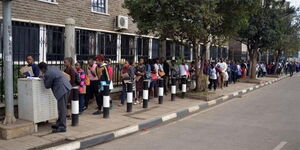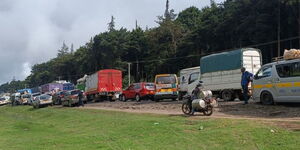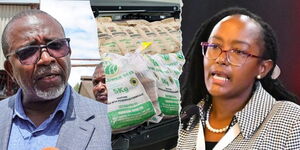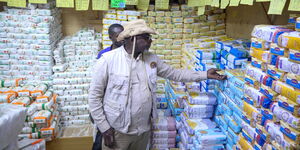The government has moved to address the looming cooking gas shortage as over 200 Liquid Petroleum Gas (LPG) trucks remain held at the Kenya - Tanzania border for close to a week over tax concerns.
Speaking during a press briefing on Friday, May 12, Kenya Revenue Authority (KRA) Deputy Commissioner Custom Revenue, Joseph Kaguru, stated that they were working around the clock to ensure that the trucks are cleared on time.
Kaguru added that the importers will pay taxes under a special law that guarantees them a refund of their money in the event they win the negotiations.
"We also have the law, an option to pay under protest in the customs laws. What it simply means is that after the negotiations, when it is established that you are right, we give back the money. However, vice versa also applies.
“The affected importers will be facilitated to clear their consignment after full compliance,” he stated.
However, he maintained that the taxes imposed on LPG gas were not new, explaining that they had not been implemented, giving an example of the VAT that was reintroduced in 2021.
He added that the negotiations will help clear the traffic snarl-up at the borders as the trucks have been inconveniencing other motorists and also posing a security threat.
“We have also noted with concern that the affected trucks are blocking the Namanga border, inconveniencing other compliant importers, and posing a security risk at the border.
"We have had an engagement with importers' representatives and owners of the trucks and they have been instructed to quickly comply and clear their LPG consignments from the Namanga One Stop Border Point (OSBP),” he stated.
Gas dealers had earlier lamented the new taxes stating that they were paying over Ksh30,000 in the new tax regime. Yusuf Hussein, Chairman of the Independent Gas Dealers Association, stated that they were expected to pay Ksh107,973 per tonne from Ksh70,240 per tonne.
He stated that the increase in taxes will have to be translated into the retail price which will affect many Kenyans already struggling to make ends meet.
"What I'm getting from our supplies is that they have increased the prices by Ksh37,732. If you look at it, it's a huge increase in pricing," he stated.












